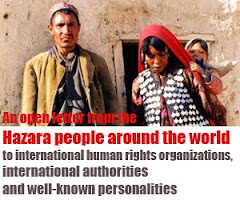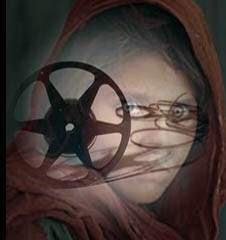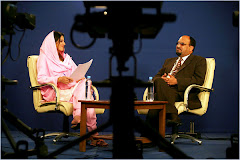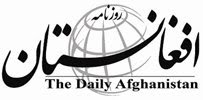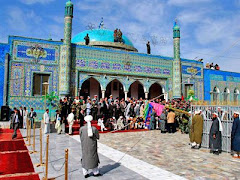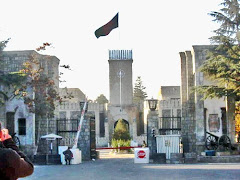Basir Ahang is another Afghan journalist who has recently suffered death threats and been forced to flee the country.
Recently we learned that Basir, a 27 year-old Afghan journalist who worked for “Farda Radio” and sometimes for the Italian Paper “La Republica,” was not missing as previously thought. In reality, he has had to flee the country because of the death threats he and his family have received from the Taliban and other extremists in Afghanistan.
We must condemn these death threats. They are one way the Taliban targets the intellectuals and young media activists of the country in addition to their killings of many innocent civilians on daily basis. We would like to express sympathy with this latest target of terror and wish him safety. We have heard he has come to Italy; we hope that he will not give up his efforts working for freedom of speech wherever he is. That is the most important thing for his country.
While Parwiz Kambakhsh has not been released yet, he has been shifted to Kabul to await further trial. Ali Mohaqiq Nasab, the secular Afghan scholar, women’s rights activist and writer-journalist, who was arrested and put on trial in 2005 for voicing controversial ideas about Islam, has recently been arrested by authorities in Iran without any clear reason. There has not been further news about him since then, though the Afghan Government Foreign Ministry, through its diplomats in Iran, have begun to talk with the Iranian government about his release.
A few months ago, Hanif Elham, the active journalist-producer and text editor for Ariana Radio and Television Network, was threatened with death by the Taliban. The threats came in response to his daily radio program, in which he revealed the crimes and genocides of the Taliban throughout their history.
This shows the worsening of the situation for free media activists in Afghanistan. There are problems and pressure from multiple sides: the Taliban, the former Jihadis, the warlords and the governmental institutions have all played a part.
Though some people may believe that the escaping journalists are in fact abandoning their country, we should keep in mind that the media and journalists are the eyes and the ears of the society. When the government not only fails to guarantee the journalists’ safety but creates pressures and obstacles for them, it is the responsibility of their country to show sympathy for and support those who serve as their eyes and ears. It is also the responsibility of the countries where they flee for protection to care for them.
The people criticizing the fleeing journalists should remember that if they did not escape the country would likely be killed. They should consider the close relationship of the government to the Taliban, and the advances the Taliban have made in the government through the Ministry of Information and Culture. Instead of defending the rights of journalists, this ministry now makes traps for them.
Those criticizing the journalists should remember the fates of those like Parwiz Kambakhsh, who are jailed or delivered directly to the Taliban. They should remember that, if a media activist is jailed by the government, there is still some hope or possibility of his release through the intervention of international journalistic organizations—but who will release them from the hands of terrorists whose actions are not based on any human logic? Who will ensure his life when even the presidential palace in the center of the capital is not safe from the Taliban and Al Qaeda’s attacks, even though that government is attempting to compromise with them?
No matter who he is, someone who is punished or threatened for speaking freely has to be assured safety. He has to be supported and protected by any country he comes to for help. That is how freedom of speech is promoted and defended.
In defense of the decisions by many journalists to flee Afghanistan, I would like to remark that, in a country where ignorance is waiting for any chance to spread again; where any knowledge is condemned easily by a Fatwa from Mullahs reliant on a flawed understandings of Islam; where such leaders maintain the trappings of Islam, such as growing beards and reciting the Quran, without knowing and acting on what it says; where such men pray without knowing what they are saying in their prayers; where people are being misled through their emotions and sensations in the name of religion; where one sees violence instead of peace and love in all corners; where the border between life and death is very narrow, narrower than a hair; where you find mines, bullets and bombs in the spring instead of blooms; if the people in such a country are not educated about current affairs by the media and journalists that are the eyes and ears of the society, will the existing corrupt government function the way people want?
In a situation like this, if the journalists are not protected, the result will be a society blinded and suffocated with unheard voices.
The day will come when there will be no threats and intimidation against journalists or civilians in Afghanistan, because there is always a light after any darkness, but it takes time. It will require more struggles and more solidarity from the people with the media. They must ask their government to provide for the protection of journalists and media activists.
Edited by Nathan Hartle
Wednesday, April 16, 2008
Tuesday, April 15, 2008
One week of anguish
The pen in my hand doesn’t move to write, my hand doesn’t have the energy to pick up the pen and my brain doesn’t work properly.
All I think about is negative things. I feel I more pessimistic now than at any time before. I am to be evicted from the center where I live, having reached the six month limit allowed for residents. I may end up sleeping on the streets of Milan; therefore every minute is every important. Important because this is the hardest time in my life, important because I can feel and imagine all the others who do not have homes to go to. I can feel and imagine all the poor of India who are born in the streets of Bombay, grow up there and finally die there. But I did not start out like them; I was not born on the street and never had to sleep on the street before coming to Italy.
I hope you will forgive me if I am writing these paragraphs messily, or am not focused. It is not my fault that my current situation is like this. I am living in Milan, one of the biggest cities in Italy and a candidate for World Expo 2015.
I haven’t explained to you the main reason for my stress this week. This is a week which may be the beginning of a worse time—who knows except God?
It has been a week in which I have counted my every minute and every hour. Soon will come that day, the day when I will experience the worst moments of my life. On the other hand it is interesting, and maybe funny, that it is the third of April. This will be the final date of my stay in the refugee center in Milan, and then I will have to find somewhere else to sleep. I am supposed to sleep on the streets? I do not have any means of support or any work to do in my current situation.
These days, when friends write me emails or make me phone calls to ask how I am doing, I am not able to answer them properly. This shows how confused I am these days.
This is not the only negative effect of my current situation. My pen does not move to fill a white page, all the things I was thinking of doing are suspended. My creativity is almost buried under the weight of worry; of thinking about how to live and how to stay alive. Thinking about how to stay alive in Milan is the only thing in my life, therefore I haven’t been able to go to my Italian classes either these days.
I remember a few days ago when I was walking on the streets of Milan and was thinking only of which places I would use as shooting locations for my next short, which I have already written here in Milan. But these days when I pass by these places I am thinking of which ones to use as my real-life dwellings when I am forced into the streets.
Although I have asked the refugee office of the Comune di Milano to give me another place to stay until I get the appropriate documents and permits to remain in Italy, I have received no answer.
I think there will be many more people like in my situation soon, as one of the dormitories in Via Barzaghi was closed down by the authorities on the 31st of March. They reasoned that it was just an emergency dormitory for winter. Many people had to sleep on the streets.
Seeing my own situation and that of other people sometimes pushes me to stand for up them and help their voices reach the authorities and rest of the world.
While there are many big billboards advertising Milano Expo 2015 everywhere in the city, I am encouraged to go to the bottom layer of the city and expose the real face of Milan: the life of the many political refuges and asylum seekers, homeless in this big commercial city of Italy, and forced to sleep on the streets.
What is both sad and funny is that, unbelievingly and unwillingly, I feel regret. Why I am trying to be writer, and why I am writing? Why is everything meaningless here in this city, and why doesn’t the government care about the political refugees? Will anyone hear my voice?
Different questions come to my mind when I look at the hundreds of artistic landmarks in the city: the churches, the private buildings, the museums, the sculptures and many other works of art. I remember reading somewhere that more than fifty percent of the world’s art is located in Italy. This shows that Italy is a country that has grown many arts and artists and that has had a long relationship with the arts.
In a short walk towards the Duomo, I see the street musicians and the street performers, who seemed strange to me when I first saw them. While some of them were truly artists and played or performed very well, I was wondering at how poorly they were treated. Some say it is just a custom to be a street musician, some say it is a normal thing to be a street performer and some say that because they are poor or homeless they have to earn money this way. For me the worst of all was getting glimpses of the life of the old fat man playing accordion, whom I saw almost any time I went towards Castello from Duomo. These days, when my own situation is more uncertain than it was a few months ago, I can understand them more easily. When I see them, I can imagine how difficult life is in Italy for artists, writers, journalists or filmmakers.

The only question that stays with me is: why is Italy, the land famous for arts and artists, not treating them well? But I can’t find the answer by myself.
Anyhow, I look forward to seeing if the Comune di Milano is going to take care of my fellow political refugees and I. If not we will have to show the world THE REAL MILANO EXPO 2008: the true story of the political refuges and immigrants in the bottom layers of Milano.
And through this MILANO EXPO we will thank the Comune di Milano for its hospitality for the political refugees in this city.
Subscribe to:
Comments (Atom)





